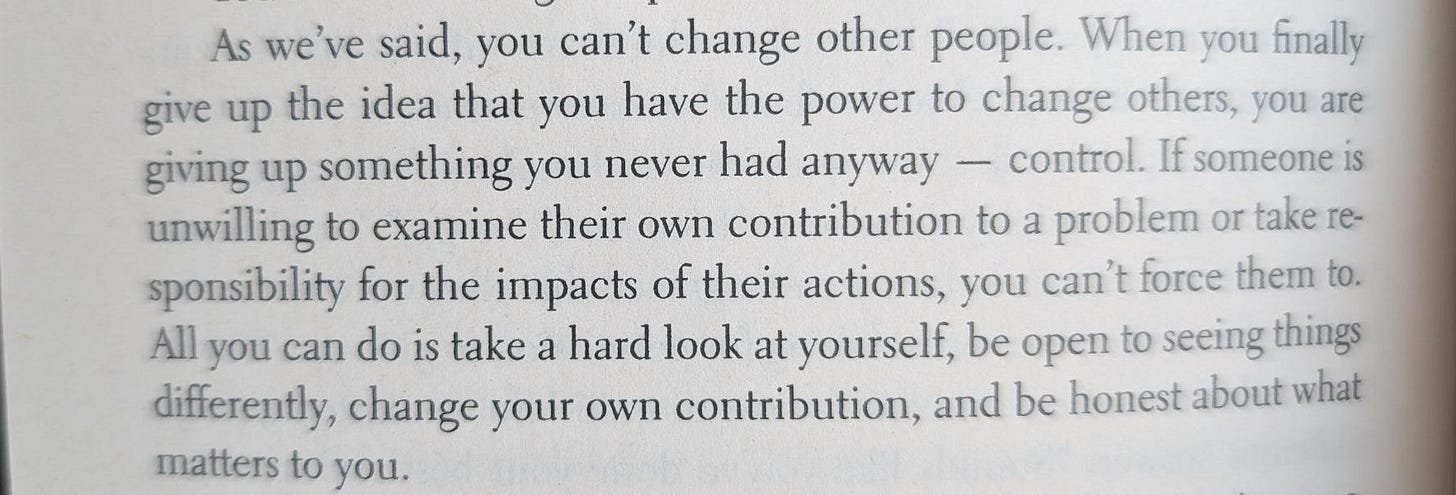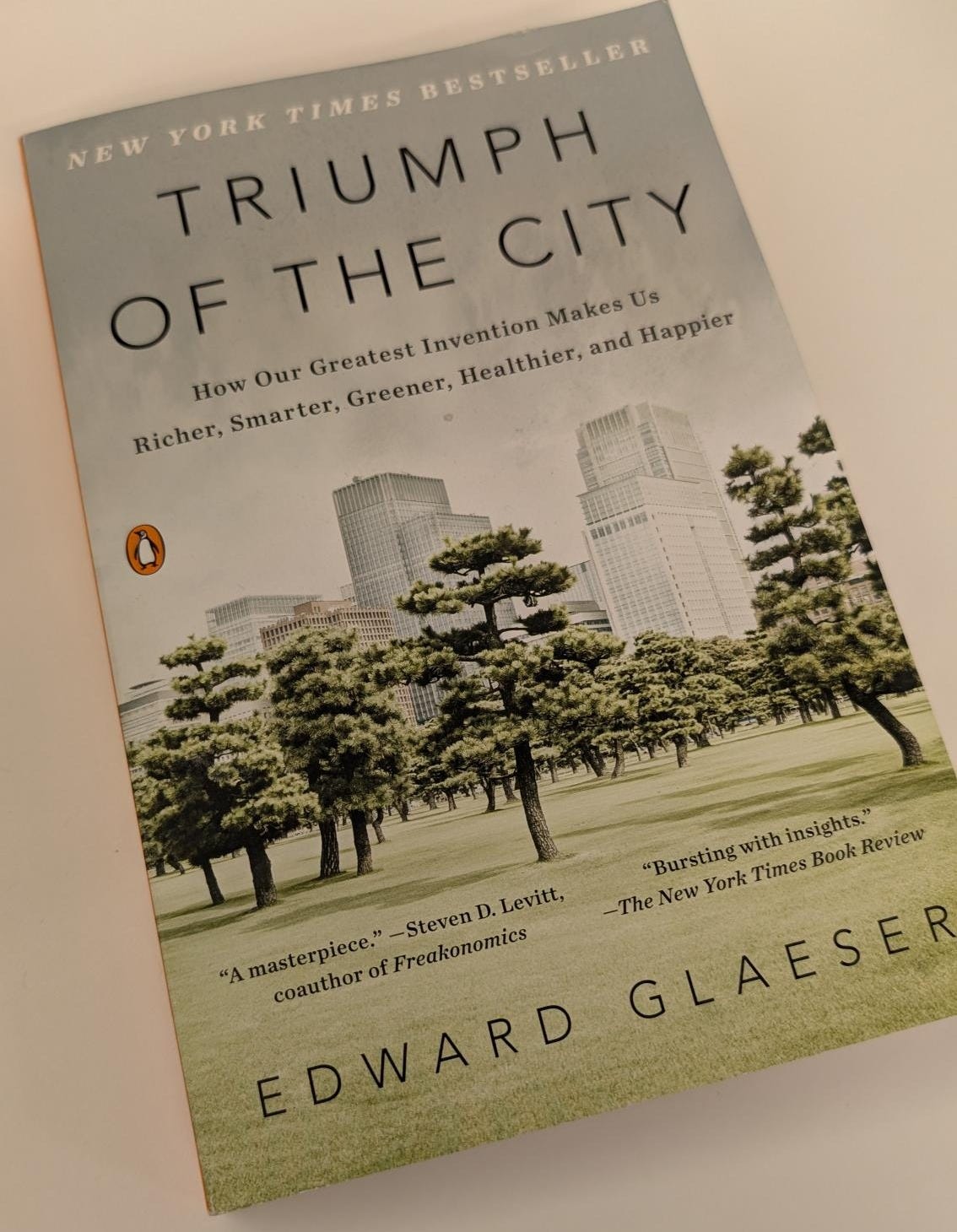I Hope This Helps 👍🏽: BEBs and Letting Go
That age old question of "why", some thoughts on Battery Electric Buses, and Triumph of the City by Edward Glaeser in this edition of I Hope This Helps👍🏽!
Welcome to I Hope This Helps, a weekly (ish) roundup of tidbits I’ve encountered that furthered my thinking about cities and life. From sustainable transportation to housing, to design, and the social forces shaping our daily lives, I take a broad lens in this review. Whether you're a planner, advocate, or just curious about the world around you, I hope you’ll find something here that resonates. Take what helps. Leave what does not.
1️⃣ Why Do We Regulate Our Cities?
We should ask “why” more. In life generally, and in policy specifically. What outcome are we trying to achieve with the policy we create? Is the policy successfully achieving that outcome? If not, why is the policy still around? The Post Suburban Future is doing great writing questioning why we regulate the cities the way we do, and suggesting alternative approaches when the intent behind the why does not align with the achieved outcomes. Check out their framework for beneficial regulation that they apply when asking these question.
To start, I’ll offer the following thesis:
The beneficial purpose of regulation is to minimize negative externalities and maximize positive externalities.
As we approach city government, that should be our goal, and that should be the mindset behind asking “why.” Why have we taken the approach we’ve taken, is it working, and what alternatives should we be considering instead? Could an alternative approach deliver more benefit at less cost?
2️⃣ Learn, Unlearn, Relearn
Futurist Alvin Toffler once said, “The illiterate of the 21st century will not be those who cannot read and write but those who cannot learn, unlearn, and relearn.”
We’re in the thick of the internet age. Information is more accessible than it has ever been in human history. Artificial Intelligence (for better or for worse) has exponentially increased the pace of information. This requires us to accept that information is not static. Information is constantly shifting, refreshing, and updating based on new discoveries, technologies and realities1. We all have that older relative that bought their home in 1990 for $20 and a handshake and is convinced that it’s laziness boxing the young people out of becoming homeowners. Failing to have the humility to refresh your understanding once it falls out of date limits your personal growth and undermines your capacity to relate to the challenges of today. Polymathic being offers the framework “Learn, Unlearn, Relearn” to combat this challenge. Check it out and let me know what you think.
3️⃣ Battery Electric Buses Are Overrated
Fine. I’ll say it. I’m dubious of the intent of the push to electrify transit fleets. The stated goal is an environmental one, but I fear it’s not working on wholly refreshed information. The primary environmental benefit of mass transit comes in its capacity to shift people out of their private cars and into shared modes of transportation. One bus beats 30 cars in an environmental head to head any day of the week. That’s why other environmental improvement (like fleet electrification) only nibble at the fringes.
This nibbling would be fine if the technology was there, but frankly, it’s not (yet). Battery Electric Buses (BEBs)2 typically cost more to purchase than their traditional, internal combustion engine (ICE) counterparts, and can operate a shorter range before they need to be refueled3. This second challenge is of particular concern because it threatens the reliability of Good Transit. The transit vehicle (bus, train, tram etc) is just a tool for delivering transit service. Any tool that impedes the function it is supposed to support is probably not the best tool for the job. Since BEBs have to refuel more frequently than their ICE counterpoints, agencies often have to adjust how they operate their transit service to meet the limitations of the transit vehicle4.With this in mind, the current push for transit fleet electrification struggles to stand up to that age old question of why5.
This video from the Armchair Urbanist discusses the OG electric bus, the trolleybus. This often overlooked vehicle type achieves the stated environmental outcomes of BEBs by dropping the battery altogether and opting for a more mature technology; the overhead pantograph.
4️⃣Control is an Illusion. Amor Fati
Those who control, fail.
Those who grasp, lose.~Lao Tzu, (Tao Te Ching)
One of our greatest self delusions is the belief that we can control things outside of ourselves. This belief undermines how we communicate with others by leading us to believe we can change people and how they think, and it opens us up to stress and grief when we find that something that we thought was under our control was not. It also gives us the audacity to believe we can get cities to exactly where we want them and then freeze that state in amber. The reality is that change is inevitable, and the best thing we can do for ourselves, the people we care to engage with, and the cities we call home is to embrace the inevitability of change. Amor fati. Love Fate. Check out this excerpt from the book Difficult Conversations on control, and what it means when we decide to let go of it.
Check out this Youtube video from Einzelgänger for more on the illusion of control, and what can happen when you resolve to let go of it.
5️⃣Triumph of the City by Edward Glaeser
If you haven’t picked it up by now, I’m a bit of a city fanboy. Triumph of the City by Edward Glaeser is probably the ultimate city fanboy manifesto. In this book, Glaeser, a Harvard Economist and the chairman of the Cities Research Programme at the International Growth Centre, describes cities as man’s greatest invention, making us more productive than we could ever be as individuals, largely due to agglomeration effects. He also details how, throughout history, cities have regularly been forced to reinvent themselves as their reason for being has shifted. He also teaches a free online Harvard course titled CitiesX: The Past, Present and Future of Urban Life if you’re interested in the topic but not so interested in reading a 300 page book by an economist. Regardless, if you have an interest in cities, why they form and how they work, I recommend checking out Triumph of the City!
Thanks for reading! I’m doing research for an article about the urban planning space generally and could use your help. If you work in urban planning or an urban planning adjacent field, or you live in a city and care about how it functions, please take a minute and fill out this 5 minute survey and pass it around your networks. Thanks in advance!
» Survey Link «
If you enjoyed this post, check out the rest of my articles here!
Real and manufactured
The technology that the bulk of agencies are pursuing in the fleet transitions
The colder the climate, the greater the range reduction.
Check out Mountain Line’s Story
My cynical take for why: A lot of federal money (at least there was) and people’s desire to believe EVs are a panacea








I don't recall when I read *Triumph of the City*, but I bought my copy as a Glaeser fan boy. But I am the anti-Glaeser now. We should distinguish *urbanists* from what I call *regionalists*. Agglomeration studies are always studies of regions, not studies of *urbs*.